Janardan proposes major reforms for revitalizing the Maoists
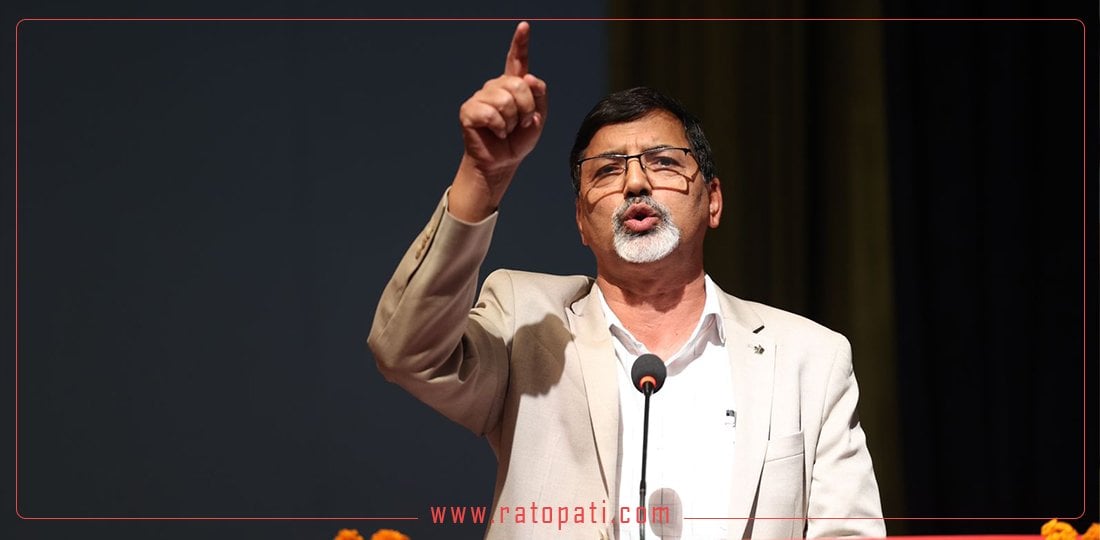
Kathmandu, August 11: CPN (Maoist Center) Deputy General Secretary Janardan Sharma 'Prabhakar' has proposed that the detailed assets of all party leaders be made public. Sharma presented this proposal in the ongoing Standing Committee meeting of the party.
Sharma emphasized the need to revitalize the Maoist party, which he believes is currently on a downward trajectory. He suggested that the party should assume a more effective opposition role and declare that it will not join the government until 2084 B.S.
According to a participant in the meeting, Sharma's proposal, titled "Problems of Party Formation, Solutions, and Upcoming Tasks," addressed various aspects of party revitalization. The proposal highlighted issues such as the need to mobilize party ranks for production and job creation, the failure to effectively campaign for these causes, and the overall decline in party engagement and effectiveness since the peace process.
Sharma noted that the party had become directionless and disorganized, with limited achievements to show and a lack of an effective development model. He pointed out that the party’s actions had alienated supporters and failed to attract urban constituency.
Sharma observed that the party's previous electoral success had diminished, with the party now approaching a state of insignificance. He mentioned that many current party members are dissatisfied.
Main cause of the problem
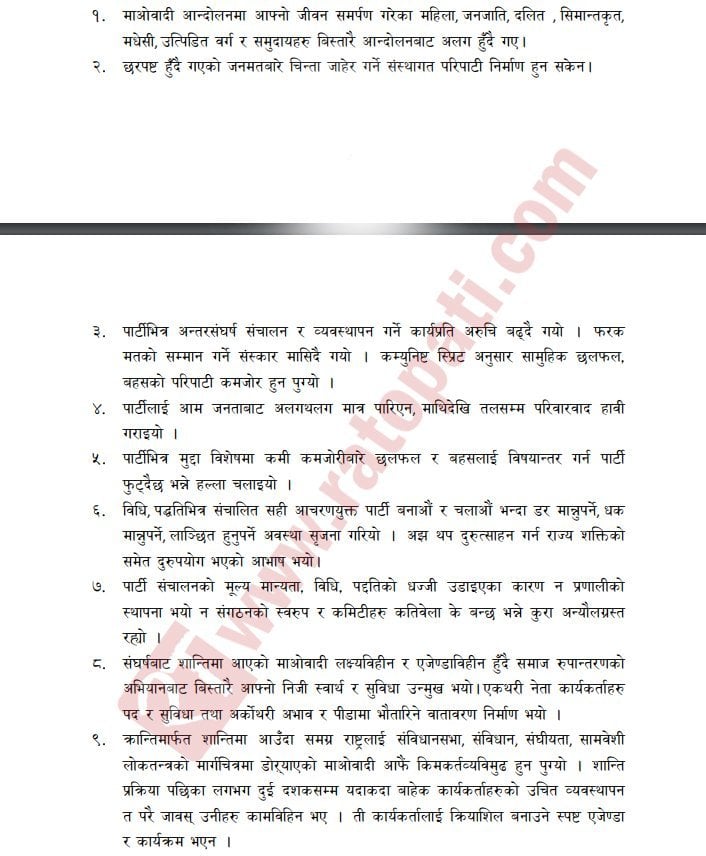
Sharma summarized the root causes of the Maoist party's problems in nine points. He noted that the movement, originally a new and inclusive struggle, failed to transition effectively into a democratic organizational system. The continued presence of wartime thinking in the party's structure and leadership has hindered its popularity.
According to Sharma, women, tribals, Dalits, marginalized groups, and Madhesi communities, who were once central to the Maoist movement, are increasingly distanced from it. He criticized the lack of institutional mechanisms to address public opinion and internal conflicts within the party. Sharma also highlighted issues such as familyism, rumors of a party split, and the defamation of party values and management methods.
Sharma's proposal suggests that the Maoists, who achieved peace through their struggle, have become aimless and self-serving. He argued that the party's leaders and workers are now divided between privileged and subaltern, with a lack of clear objectives or active programs.
Future strategy for party restructuring
In his proposal, Sharma outlined a 16-point strategy for rebuilding the party. He stressed the importance of defining a socialist-oriented economy as envisioned by the constitution and called for a clear stance on the neoliberal economy that has dominated for decades.
Sharma proposed radical reforms, including a progressive tax system, land reform, poverty reduction strategies, industrialization, international trade strategies, and the development of infrastructure for employment and public services. He also emphasized the need for the party to communicate its achievements, strengthen economic transformation, and advance education and health agendas according to public needs.
Additionally, Sharma suggested focusing on the remaining constitutional agendas, such as electoral systems, state restructuring, and building public support on issues of ethnic, linguistic, and cultural identity. He called for a social reform movement to increase social awareness, production, and employment, and to mobilize the public against social discrimination.
Issues of party restructuring
Sharma's proposal includes nine key points on party revamp. He recommended maintaining ideological clarity, revising and implementing party statutes, organizing democratic debates, and evaluating the government’s achievements and shortcomings over the past 15 years.
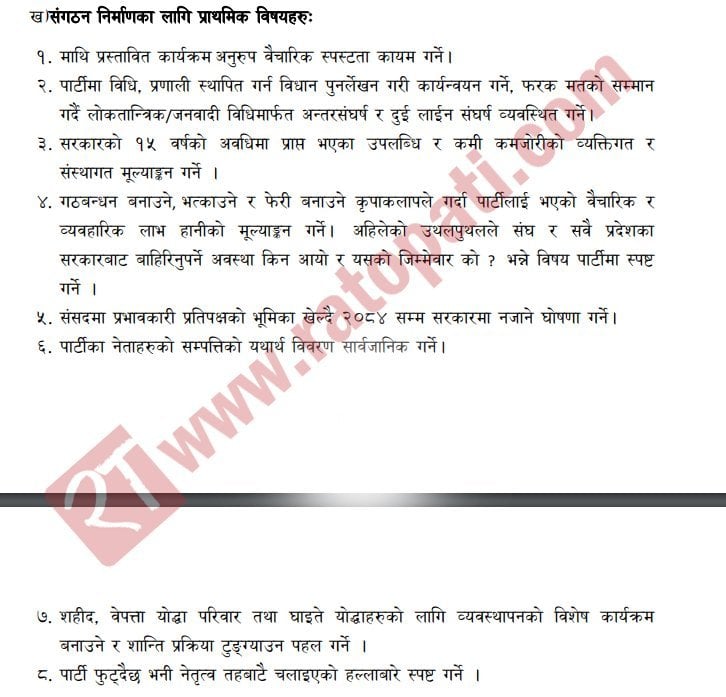
Sharma also called for assessing the gains and losses from alliance politics, creating special package programs for martyrs and affected families, and addressing rumors of a party split from the leadership level.
Proposal to change election symbol
Sharma highlighted the need to align the party's image with current realities by changing its name and election symbol.
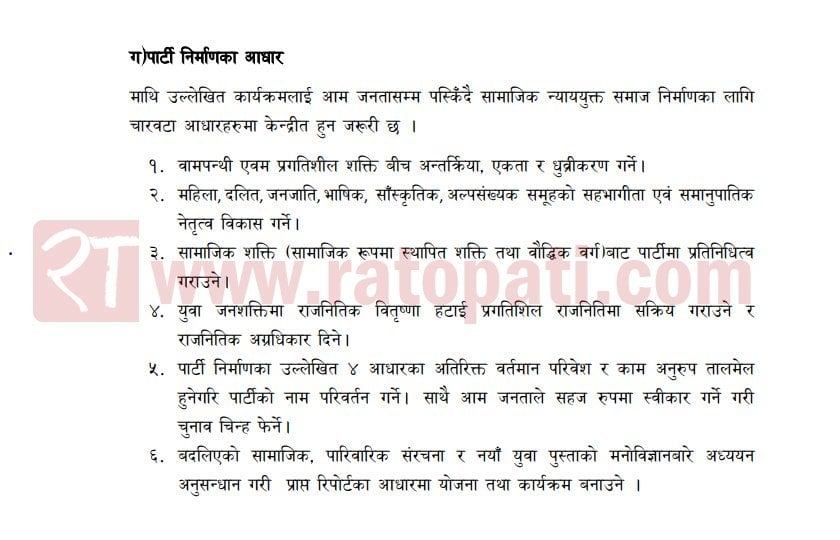
He also proposed increasing interaction and unity among left-wing and progressive forces, ensuring proportional representation of women, Dalits, tribes, and minority groups, and incorporating more intellectuals into the party.
Additionally, he advocated for engaging disaffected youth and prioritizing their political involvement.

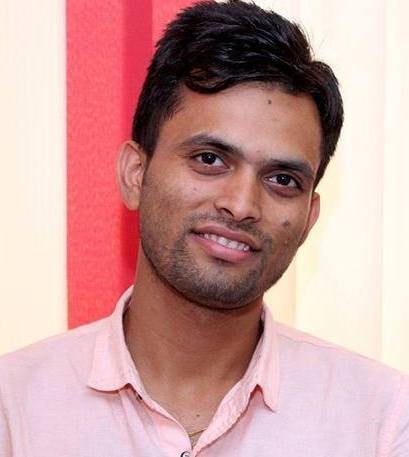








Leave Comment